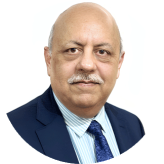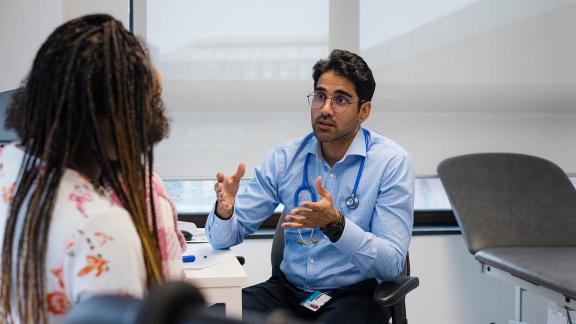My time serving as a SAS advocate
18 October 2024
Authors
-
Dr Naeem Aziz SAS lead and council member, Royal College of Physicians, London and Associate Specialist, SAS Advocate and Clinical Director, Aneurin Bevan University Health Board.

Share

Dr Naeem Aziz FRCP
SAS lead and council member, Royal College of Physicians, London
Associate Specialist, SAS Advocate and Clinical Director, Aneurin Bevan University Health Board
In 2021, after the SAS contract reforms introduced new roles, such as the SAS advocate and specialist grade. I became the first SAS advocate in my health board in south Wales. This initiative was funded by the Welsh government to support SAS advocates across all the health boards in Wales.
Although I was new to this role in an official capacity, I was familiar with the concept of advocating for my colleagues. I joined the health board over 20 years’ ago as a SAS doctor, I had been functioning as an associate specialist in elderly care medicine, performing duties akin to those of a consultant. With a focus on SAS contracts, medicolegal issues, and wellbeing, I was well known to most SAS doctors in the organisation, as well as senior management, who often sought my support with complex issues related to SAS doctors. Consequently, when I formally assumed the advocate role, my previous experience proved invaluable, much like how doctors typically do not advance to senior roles without substantial knowledge, training, and experience.
As the SAS advocate, I joined the medical directors team and reported directly to the medical director, who recognised my ability to handle complex and sensitive issues. This helped senior managers realise that such roles should not be filled randomly. Consequently, over the past three years since my appointment, there has been growing support for a system to prepare other SAS doctors to gradually assume the role of advocates, effectively planning for succession when I step down.
However, it was not solely my knowledge and understanding that enabled me to perform this role; it was also the nature of the issues I have addressed and the impact that serving as an advocate has had within the organisation.
In my role as a SAS advocate, I have regularly addressed complaints from SAS doctors regarding job plans, overwhelming workloads, and insufficient time for supporting professional activities (SPA). It is also quite common for me to encounter allegations of unfair treatment, perceived as bullying and harassment by SAS doctors. On occasion, I had to mediate particularly sensitive issues such as allegations of misconduct.
Senior managers now recognise that many cases might have escalated to formal grievances or external adjudicators. However, my involvement as a SAS advocate has ensured that nearly all these cases were effectively resolved to everyone's satisfaction without needing formal escalation.
“I urge NHS leaders to leverage the advocate’s role more effectively and enable senior SAS doctors to contribute significantly to specialist care.”
Three years later, the advocate’s role is beginning to be a key element of the senior management team in my organisation. Many clinical directors and HR managers now look to me for support and guidance to assist their SAS doctors. This role has provided SAS doctors with an official platform to voice their concerns without fear and seek advice and direction.
While I find fulfilment and relative content with my performance and support I receive in my organisation for such a critical role, I am equally aware that the advocate position is diminishing in both significance and relevance. This decline might be attributed to many SAS doctors assuming this role without adequate guidance or preparation, leading to difficulties in addressing the challenges for which I was trained. Nevertheless, I believe the role is waning because it is perceived as external to the established management hierarchy within NHS organisations.
Since I assumed this position, I have observed the positive impact it has had on the wellbeing of SAS doctors and how it enables the organisation to better support them. However, the role’s insufficient integration into the senior management hierarchy undermines its effectiveness, revealing early signs of disintegration.
This reminds me of Christopher Howell's 2010 reference to SAS doctors as the "lost tribe" of the NHS. At that time, these doctors were referred to as non-consultant career grades (PDF) (NCCGs). Howell mentioned that many recommendations have been proposed over the years to assist these doctors; however, unfortunately, only a few have been implemented.
While the creation of the SAS advocate role was a crucial and timely step towards assisting SAS doctors, it needs to be embedded within senior management structures to ensure its long-term effectiveness. Since the 2021 SAS contract reforms, only a handful of new specialist grade positions have been created. This is partly due to the limited integration of the SAS advocate’s role in workforce planning strategies. I urge NHS leaders to leverage the advocate’s role more effectively and enable senior SAS doctors to contribute significantly to specialist care.